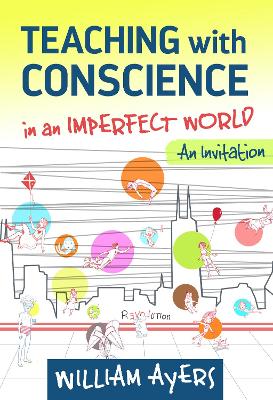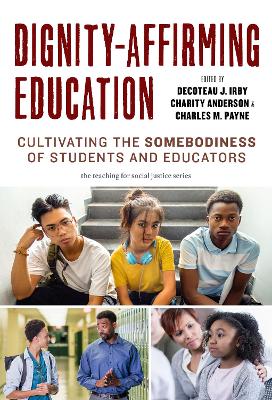Teaching for Social Justice
2 total works
How do we see our schools and the project of education? Is this the best we can do? What would we like our schools to become? How might we get there? In this provocative book, Bill Ayers invites us to dream of schools in which each child "is of infinite and incalculable value." Blending personal anecdotes with critique of the state of education, this beautifully written little book is filled with big ideas thatexplore the challenges and opportunities for an education system that desperately needs repair. Teaching with Conscience in an Imperfect World is an urgent call to action and a plan to help educators, policymakers, and parents to stretch toward something new and dramatically better-schools that are more joyful and more just, more balanced and more guided by the power of love.
Book Features:
Book Features:
- Designed to promote meaningful discussions in teacher education courses.
- Addresses the problems with our current education system and how they came to be.
- Advocates for schooling that promotes critical thinking and engaged learning.
- Critiques school reform efforts, such as curriculum standardization and dated performance metrics.
The word "dignity" isn't typically used in education, yet it's at the core of strong pedagogy. This book names the concept and shows readers what education looks like when it is centered on students' dignity. By bringing together a collection of chapters written by authors with wide-ranging expertise, this volume presents a powerful approach to education that reminds people of their somebodiness-the premise that each person inherently possesses the intellectual acumen and creative resources to pursue development on their own terms. This timely book brings dignity into sharper focus, moving the field toward a language that captures what is required for oppressed communities to recognize their potential. It synthesizes research for educators, school leaders, and educational activists to help them make sense of what they are working for and against: dignity and the numerous affronts to it. Dignity-Affirming Education is important reading for anyone who works with students of any age, including nontraditional or adult learners, in formal and informal educational contexts.
Book Features:
- Provides a clear picture of how educators can affirm students' dignity in their everyday practice.
- Outlines an approach to social-emotional learning (SEL) that takes social processes such as stigma, exclusion, and marginalization into account.
- Offers vivid portraits of what dignity-affirming education can be for a variety of settings.
- Contributes to a new vocabulary for seeing educational processes as students experience them.
- Presents rigorous research in a way that is digestible for policymakers, practitioners, and scholars alike.
- Provides a base for emerging study and sets the stage for additional inquiry and research.

